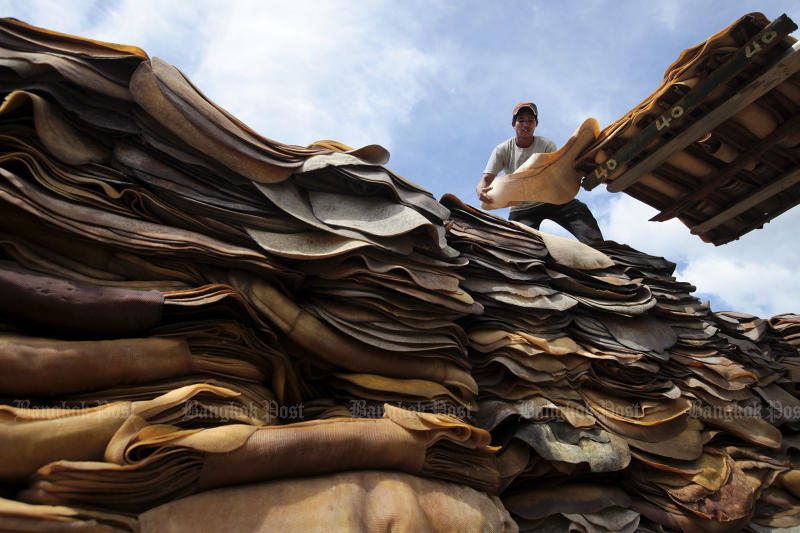
Thailand, Malaysia and Indonesia are cooperating to ensure stability of world rubber prices, which continue to fluctuate after signs of recovery.
Titus Suksaard, governor of the Rubber Authority of Thailand, said the three countries, which account for 70% of the world's natural rubber supply, recently held a meeting to discuss the situation.
They agreed that rubber prices will continue to rise because of several factors, including lower supply due to heavy rainfall and flooding in the South of Thailand. However, the big players in the natural rubber industry see prices as still volatile.
As a result, the three countries have agreed to increase domestic demand as much as possible. They will meet again in July to discuss the issue again and see whether prices are still fluctuating; if so, the group might consider controlling rubber exports to tamp down prices.
Malaysia, Indonesia and India implemented policies to reduce rubber plantations in a bid to curb production and boost market prices, said Mr Titus.
Meanwhile, the Natural Rubber Policy Committee has approved to extend a rubber price subsidy scheme worth 20 billion baht to bolster rubber prices in the country.
Mr Titus said the committee, chaired by Prime Minister Prayut Chan-o-cha, approved on Friday two financial aid schemes. The first is an extension of a soft loan package worth 10 billion baht to rubber cooperatives for another year, until March 31 next year. The loans are to encourage rubber cooperatives to buy more raw rubber from farmers.
The second scheme is to extend loan packages totalling 10 billion to private rubber processing operators to help with their cash flow so that they can continue production and buy rubber from farmers. Under this scheme which will last until April 2019, the government will subsidise 3% of interest rate for borrowers.
Mr Titus said under the package, as high as 200,000 tonnes of raw rubber products are expected to buy from farmers this year which will help stabilise rubber prices next year. Gen Prayut also authorised related agencies to increase their purchasing of rubber to push up the price.
Domestic demand for rubber in 2016 was only 600,000 tonnes compared with total supply of 4 million tonnes. As a result, the government set a target to double domestic demand to 1.2 million tonnes a year. Meanwhile, the government has plans to reduce the size of rubber plantations by 400,000 rai per year.
Local prices increased to 70 baht a kilogramme for ordinary smoked rubber, compared to 30-40 baht per kg in the same period the year before.
He said the International Monetary Fund also predicted that the economies of the US, EU and Japan are still on a rising trend which should enhance the strength of the global economy. World automotive industry growth this year is expected between 7% and more than 12%.
